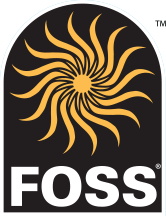Program Features

Research-based and nationally field-tested
FOSS was developed through a rich collaboration of scientists, educational researchers, curriculum developers, assessment specialists, teachers, administrators, community members, and parents. FOSS combines proven teaching strategies with field-tested materials to promote scientific literacy and student achievement.
Watch this NSTA TV video to see students engaging with the curriculum and featuring the developers at The Lawrence Hall of Science, University of California, Berkeley.
Classroom-tested
FOSS is the result of academic research on learning interwoven with practical experiences in classrooms. FOSS helps all educators teach and manage inquiry-based science. The carefully designed instructional sequences and thoroughly tested equipment provide support for teachers with different experience levels in science.
Students learn science by doing science
FOSS engages students in scientific and engineering practices. Students construct an understanding of science concepts through their own investigations and analyses, using laboratory equipment, student readings, and interactive technology. Students exercise logical thinking and decision-making skills appropriate to their age levels. Students explore phenomena.
- Making Sense of Phenomena in FOSS – Grades K-5 (video)
- Making Sense of Phenomena in FOSS – Grades 6-8 (video)
Integrated reading, writing, and mathematics
The FOSS active investigations, science notebooks, FOSS Science Resources articles, and formative assessments provide rich contexts in which students develop and exercise thinking and communication.
- Sense Making Discussions in FOSS – Grades 3-5 (video)
- Sense Making Discussions in FOSS – Grades 6-8 (video)
These elements are essential for effective instruction in both science and language arts. Students experience the natural world in real and authentic ways and use language to inquire, process information, and communicate their thinking about scientific phenomena. FOSS refers to this development of language process and skills within the context of science as science-centered language development. Students in FOSS actively use mathematics to quantify and communicate results of investigations and experiments.
Assessment System
The Assessment System uses a number of formative and summative strategies to help teachers and students monitor students’ progress and measure students’ abilities to apply the concepts they have learned. The formative assessment system includes observation of students engaged in scientific practices and review of notebook entries. The FOSS assessment system was carefully developed through a thorough research project at The Lawrence (ASK, Assessing Science Knowledge). Students participate through self-assessment.
Interactive technology
FOSS developers, working with a multimedia design team, have developed a series of interactive activities for use by K-8 students at home and at school. These include online extension activities, virtual investigations, and student tutorials, which support students who have difficulties or who have been absent. Multimedia is integrated into the program.
Taking FOSS Outdoors
FOSS takes learning outdoors and proclaims the entire school campus to be part of the science classroom. The true value of science knowledge is its usefulness in the real world and not just in the classroom. Taking regular excursions into the immediate outdoor environment has many benefits. It provides opportunities for students to apply things they learned in the classroom to novel situations. When students are able to transfer knowledge of scientific principles to natural systems, they experience a sense of accomplishment. With repeated visits to familiar outdoor learning environments, students may first develop comfort in the outdoors, followed by a desire to embrace and understand natural systems.
Program support
Teachers of FOSS receive a comprehensive Investigations Guide in print and as an eGuide, teacher preparation videos, extensive resources online, a national consultant network, and the FOSS newsletter. The original developers of FOSS are available through the FOSS Project at The Lawrence to support educators and to extend the national consultant network for ongoing professional development. FOSS provides an Administrator’s Toolbox to support implementation. The Lawrence works closely with Delta Education, the FOSS publisher, to maintain high-quality materials and support.
The development of FOSS has been supported by the National Science Foundation, the University of California at Berkeley, and Delta Education, the FOSS publisher/partner.
teset

